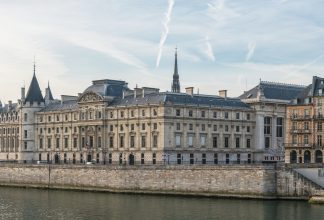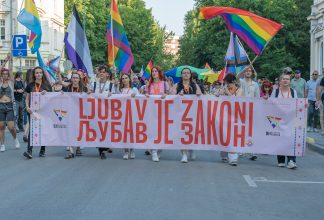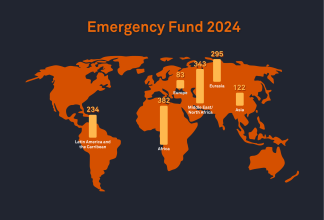The EU-Cuba Agreement, its Impact on Cuban Society and Possible Future Projection
Letter #24 by Osmel Ramirez Alvarez.
In July 2019, Civil Rights Defenders invited Cuban human rights defenders and civil society organisations to contribute with texts on how the European Union should work towards Cuba. This letter is written by Osmel Ramirez Alvarez.
The EU-Cuba Agreement, its Impact on Cuban Society and Possible Future Projection
The history of relations between the EU and Cuba has been tortuous. Since the EU emerged as a supranational entity, Cuba was already the same as it is today: a country ruled by a communist dictatorship, with a single party that stands as the sovereign of our people, which does not allow a single space, even the smallest, for freedom to change and choose a better future.
But we understand that it is a government recognised by the international community and, therefore, the only possible interlocutor of the Cuban people. Although it seems illegitimate and unfair to us.
We also understand why the international community falls into the trap of believing that the small and insignificant “changes”, promoted as gifts by the government, are signs of an exponential process of “other changes”. Pure illusion!
The premise for change is to acknowledge that change needs to be made, be it people or governments, but the Communist Party that has hold the power in Cuba for six decades believes itself to be the owner of the truth and blames others for its failures, especially the United States. Every sign of change is pure mockery and a strategy maintain the dictatorship, or simply to take advantage of the good faith of those who, like Europe, have believed in their mermaid songs.
The Cuban government has been able to maintain its dictatorship indeed. First, in the middle of the Cold War taking advantage of the easing between two antagonistic ideological fields; and then, with renewed tactics, such as investing in a foreign policy and in “solidarity” that is supposedly selfless, using the semi-slave work of our doctors.
It is all about foreign policy, as arrogant and chauvinistic, as sneaky when it comes to taking advantage of favourable circumstances. And in the search of support or commitment, they play with the interests of different regions, Europe being its second business partner.
The ephemeral thaw of political and economic relations with the United States, at the end of the Obama administration, was undoubtedly an incentive for Europe to advance a faster agreement with Cuba (the PDCA). A substantial change seemed imminent and the old continent also wanted to be the architect of the new situation. Something understandable.
It is important to note that in these predictions, both the Obama administration and Europe started from a huge mistake: implying that Cuba, under the government of Raul Castro, and even more, under that of Miguel Diaz-Canel, was changing towards a more democratic and liberal society. That couldn’t be further from reality.
Raul Castro made it clear that his task was not to destroy socialism but to help save it; and, for them, “socialism” means the dictatorship of their party, all economic power controlled by the State and the State dominated by the sole party. Diaz-Canel, who doesn’t have the last name Castro, repeats what they indoctrinated on him. Simply read or listen to their slogan: “we are continuity”.
Nothing has changed, except for some small and cosmetic readjustments that, more than changes, represent temporary accommodations of the same system within a more adverse environment, which requires changes and that, reluctantly, must be simulated or partially made without affecting the essence of their despotic power.
To believe that the government of Cuba is willing to change or submit itself, at some point, to the scrutiny of the popular vote; that it will allow Cuban political plurality that exists in illegality and exile, the right to organise legally and compete for public office; or that it will stop violating the human rights of Cubans. Believing this, means not knowing Cuba or the totalitarian government of the Communist Party.
Of the three chapters of the PDCA, the first two, Political Dialogue, and Dialogue on Cooperation and Policy Sector, include the topic of Human Rights. And the third is purely on economics. However, what is perceived is that the only thing that matters is the economic-commercial issue, because that is where the only results are.
Meanwhile, the human rights issue is relegated to nominal conversations, without outcome or anything that indicates progress. In this respect, there is only an exchange of “points of view”, but the adverse reality of human rights in Cuba is not evaluated, nor does the Cuban government feel any pressure from Europe to improve.
What has happened to Human Rights since the PDCA was signed?
- Cuban Human Rights organisations continue to reside
abroad because the government does not allow their work inside the island
- Civil society and freedom of expression continue to be criminalised and repressed.
- Repression has increased drastically.
- Independent press is criminalised, persecuted and repressed.
- Digital media uncomfortable to the government is blocked on the internet.
- Independent journalists are usually arbitrarily detained and imprisoned for up to three days, without charge, but some have been brought to trial and convicted of fabricated crimes.
- We suffer raids and seizure of work tools, intimidation, threats of jail and much more.
- The Cuban political police, called “State Security”, have the prerogative of “regulating” any person without a court order. This means prohibition of traveling abroad. At the moment, we are around 150 “regulados” in the country. (The undersigned journalist has been banned from traveling, at the time of writing this article, 658 days).
- The Gay Pride Parade of this year, as the government did not summon it, was repressed.
- Cuban artists who oppose a spurious decree-law (349), which regulates the exercise of art in a state-controlled manner, were and are constantly repressed.
And much more!
The worst is that the above has increased, with impunity, since the PDCA was signed. It should be noted, that this agreement was materialised when relations with the United States were already deteriorated, under the new administration of Donald Trump. And the increments in repression is, without a doubt, a response of the dictatorship towards neutralising the democratic forces within our society.
Therefore, it is evident, that the agreement with Europe did not mean any pressure in terms of human rights. In the three meetings that have been held, the Cuban government, with the arrogance and chauvinism that characterises it, manifests and defends the shameless thesis that “they have a different way of understanding democracy and human rights.” As if there was an undemocratic way of understanding democracy and a transgressive way of understanding human rights.
The Cuban government will only allow the necessary changes in our society in the event it is forced by external circumstances, andwe will also do it as civil society, free press and peaceful opposition. Undoubtedly, Europe can be of great support in this just cause and the PDCA has the tools to do so.
I firmly believe that the agreement is good, what is not positive is the tepid way in which the issue of human rights has been handled until today.
Europe must change its position, from “hopeful” to “active”, and to not hesitantly wait for a miracle while human rights are violated atrociously in Cuba. It must demand progress as a premise for the preservation and fulfilment of the agreement. This would give us a vital workspace for the civil society, the independent press and the peaceful opposition to act for the change that Cuba needs.
About the PDCA onwards:
· What would suit the Cuban people the most is not that the EU Member States stop from signing or ratifying the PDCA, but that the European Parliament conditions it to the effective observance of human rights in Cuba.
· We understand that Europe, within the framework of the agreement, assembles with the false civil society imposed on them by the government. It would not be a problem if Europe considers that the reports the government submits do not reflect the reality in the country. And meanwhile, it should impose as a requirement, for the sake of truth, of assembling with the true civil society, which as the rest of the world, challenges the government and works without its guardianship.
· Europe should issue an annual report on the situation of human rights in Cuba as part of this agreement and be prepared to establish sanctions on all aid and economic cooperation with Cuba, in the event that these reports show a decline or lack of progress in terms of human rights.
Only then, the PDCA would be truly useful to the Cuban people. Not only economically but also politically and socially, helping to build a better Cuba.
Osmel Ramirez Alvarez, independent journalist
Osmel Ramirez Alvarez
Osmel Ramírez was born in Mayari, Cuba, in 1975. He is a cytogenetic Biologist, former professor of history and philosophy at the University of Moa. Currently, he is an independent journalist, collaborator of Diario de Cuba and Havana Times. His political views are of centre-left, and is a declared socialist democrat. He advocates for a fairer social pact, without social violence, through mean of strengthening democracy. He belongs to the Participatory and Democratic Socialism opinion group (Socialismo Participativo y Democrático -SPD), on whose website and newsletters many of his works are published. For his journalistic work and opposition to the regime of the Communist Party of Cuba, he has been subjected to threats, persecution and arbitrary detentions by the political police.


